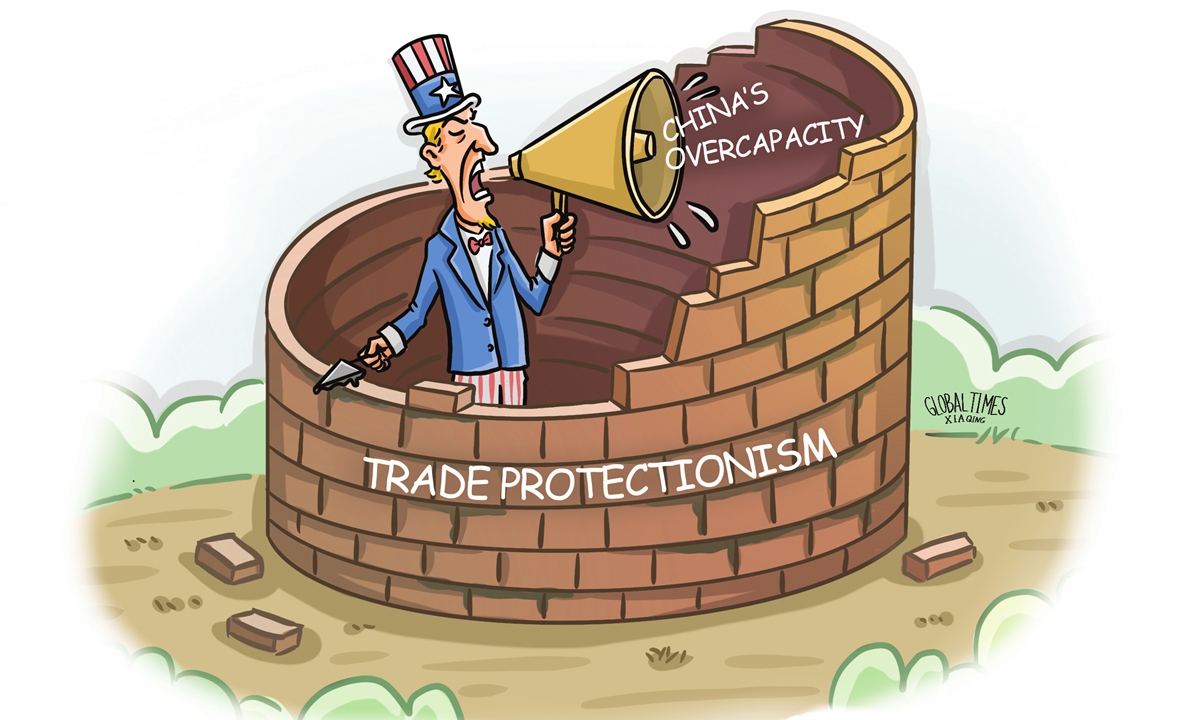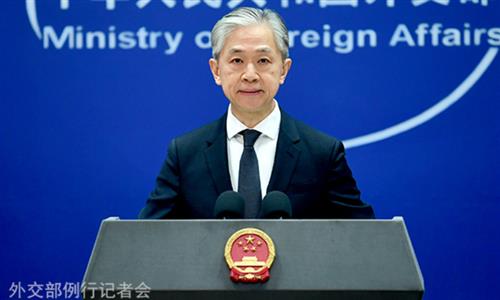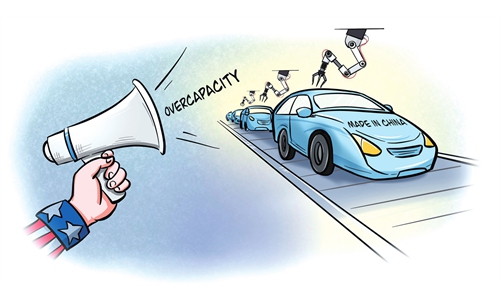
Illustration: Liu Rui/GT
Protectionism is viewed negative in economic policy as it implies a desire to limit international trade in order to focus on domestic growth. Put more bluntly, it wants to close doors. The rhetoric of protectionism might sound tough - "we are taking care of companies and workers here at home" - but the reality is that the strategy is used when a country is struggling.
The US, which for more than three decades consistently trumpeted its commitment to open and global trade, is now playing a different tune. It wants domestic and global audiences to believe that China is suffering from "overcapacity," accusing China of flooding global markets with excess production at low prices.
While protectionist comments score political points at home, they fail to recognize that the US was the biggest booster and often the greatest beneficiary of more than three decades of globalization, the opposite of protectionism. In general, Americans who are better educated, who live in cities and who already have some wealth have not been affected by layoffs and rising economic inequality, both byproducts of globalization.
Donald Trump's election in 2016, coming just months after British voters chose to leave the European Union, was a pivotal moment for the anger felt by the unemployed and the underemployed. His "America First" plan was predicated on his belief that anything made in the US was superior to what was available on the global market and that the US had to exit multiple international treaties because they were damaging the country.
However, it's important to keep in mind what Harvard University's Weatherhead Center for International Affairs has suggested: "A new wave of protectionism didn't need to be the political answer [to the drawbacks to globalization] ... however, it is the prevailing choice in both the Republican and Democrat camps."
There is a cliche often heard in the US: Kick the can down the road. It means that instead of dealing with a critical problem now, people put it off until tomorrow. Perhaps they think it will go away. Perhaps they hope the problem will not be as bad as it seems. Perhaps they want to find someone or something to blame. Regardless, it is a bad decision. In effect, what US politicians are doing in promoting protectionism is failing to address the structural problems at home that have led to millions of Americans feeling dissatisfied with the current situation.
Global trade reduces poverty, increases opportunities for more people, inspires people to open businesses and much more. The antithesis to free trade is a trade war. The World Bank examined the trade war that Trump started against China in 2018. One of its findings should be etched into the mind of every American politician: "As expected, the trade war reduced US exports to China and Chinese exports to the US. But China's importance to global trade has only increased."
While President Joe Biden has not initiated a similar trade war with China, he has allowed unnecessary tariffs to remain in place. The Biden administration has also sought to cripple China's access to cutting-edge technologies and ban Chinese goods, most recently electric vehicles (EVs), from entering the US market. It wants the American electorate to believe that China wants to undermine the American auto industry, which is far behind China in producing affordable EVs. However, the US will not admit that China is in the global leading position in this sector (and many others) in part because its government adopted a long-term approach to multiple aspects of the green economy.
In other words, China did not kick the can down the road. Instead, it looked down the road, anticipated the challenges and opportunities that would come and made important choices. Those choices have been proven correct.
Let's return to EVs for a moment. The most popular Chinese brand name in EVs is BYD, which recently unveiled a model that costs roughly $14,000. When you remember that Americans receive subsidies of roughly $9,000 for purchasing an EV, imagine how many Americans would line up to buy a good quality, inexpensive car that would be good for the environment. And when you add into the mix that Biden is a proponent of EVs, his effort to prevent Chinese EVs from entering into US market is based solely on a protectionist ideology. Put more bluntly, he favors EVs only if American companies are making them and benefiting from their sales.
Protectionism does not work in the 21st century. It turns countries against each other. It creates more problems. It is a sign of weakness. Americans should expect their government to acknowledge any shortcomings and fix them.
The author is an associate professor at the Department of Communication and Organizational Leadership at Robert Morris University. opinion@globaltimes.com.cn


